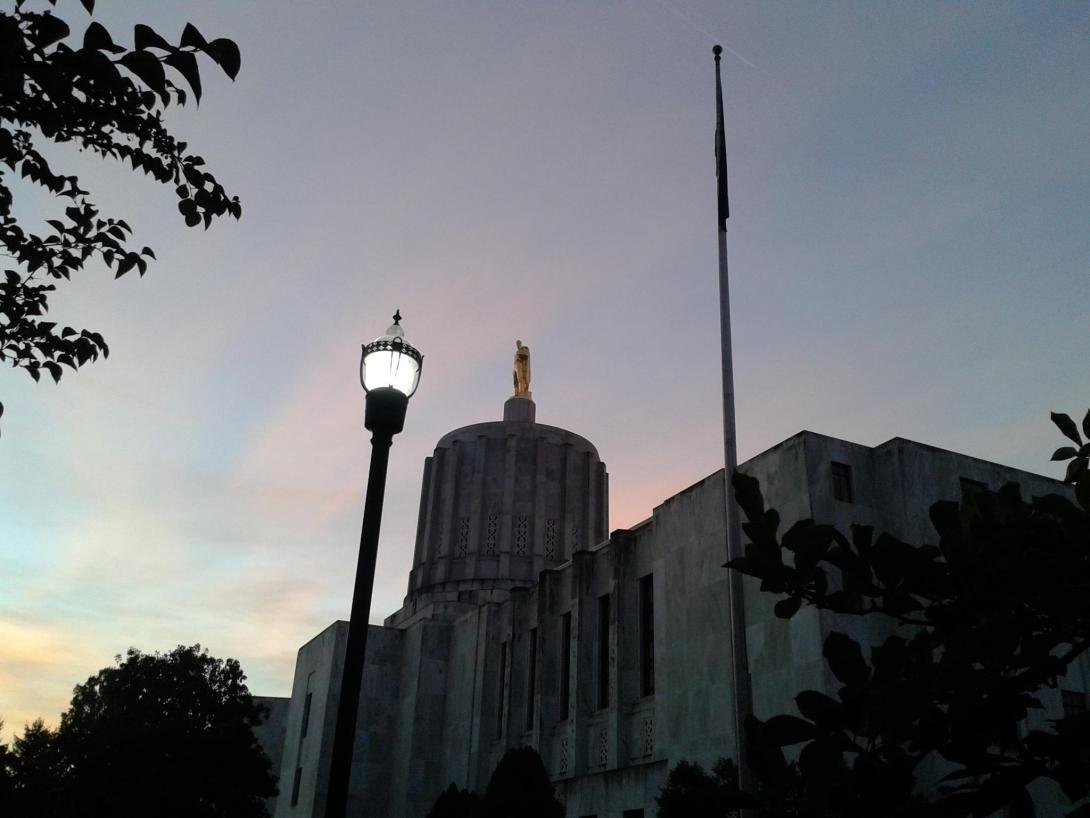
It’s up to senators in Salem to decide whether voters should have the final say on making affordable health care a state right.
House Joint Resolution 202, championed by Rep. Mitch Greenlick, D-Portland, would send the question of making health care a right to voters in November. The amendment, if adopted, would force policymakers and lawmakers to find a universal health care model for Oregon. The proposed “Hope Amendment” would be a legacy-setting achievement for Greenlick, a former chair of the House Committee on Health Care who is not running for re-election after this session.
The proposal, which has passed the House, still needs to get through the Senate Committee on Health Care and the full chamber. The Senate committee heard testimony on the proposal Thursday without taking action. The committee may decide on moving the measure forward as early as Tuesday.
Backers of the proposal are determining whether the measure has enough Senate support to pass a vote in the upper chamber, where it died in 2018.
“At this point, we need to work on some senators to make sure we can pass it on the floor,” Sen. Laurie Monnes Anderson, chair of the Senate committee, told The Lund Report.
“I believe that health care is a right,” Monnes Anderson, D-Gresham, said.
Sen. James Manning Jr., D-Eugene, is another supporter.
“We are human, and we have to look at this from a humane perspective,” he told the panel. “This is not a political issue. This is a human issue.”
The proposed amendment has a history of faltering in the upper chamber. It has passed the House three times, most recently in 2018, but died in the Senate.
The latest version is different, with new language balancing the need for affordable health care with other government priorities, like public education. That’s intended to reassure potential critics that the amendment will not create a black hole that forces the state to cut back spending on other needs.
The amendment says it’s the obligation of the state to ensure that every resident has access to “cost-effective, clinically appropriate and affordable health care as a fundamental right.”
Manning said the amendment is in lockstep with 2019 legislation that established a task force to look at universal health care models for Oregon.
The amendment doesn’t give a specific solution for what a universal health care model would look like. That would be up to policymakers.
As a result, the proposal’s open-ended endorsement of affordable health care has attracted supporters across the spectrum, including the industry and advocates.
“We believe that universal access is different than single payer,” Jessica Adamson, a lobbyist with Providence Health & Services, told lawmakers. She said potential examples could include premium or co-pay subsidies or program expansions.
“We are anxious to work with you to make those opportunities a reality,” she said.
Dr. Bruce Thomson, a family physician in Corvallis, urged lawmakers to pass the measure. He said the current system that makes families choose between health care and having a roof over their heads is unsustainable.
“We cannot wait longer for there to be national universal health care,” he said. “Oregon is one of many other states across our nation that are taking on state-based publicly funded universal health care for its people.”
Tom Sincic, a retired family nurse practitioner and president of Health Care for All Oregon, an advocacy group, said residents deserve to have a say in a matter. He urged the committee to bring it forward to the full chamber for a vote.
“This is an opportunity for a historic moment, and the people would like to know what all of the senators have to say,” he said.
You can reach Ben Botkin at [email protected] or via Twitter @BenBotkin1.

